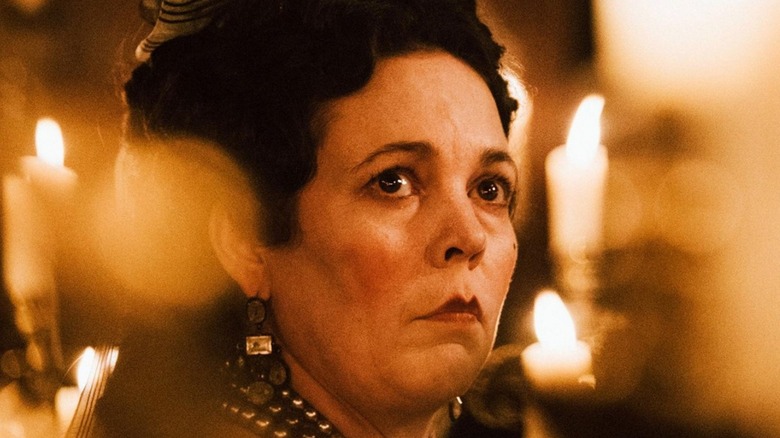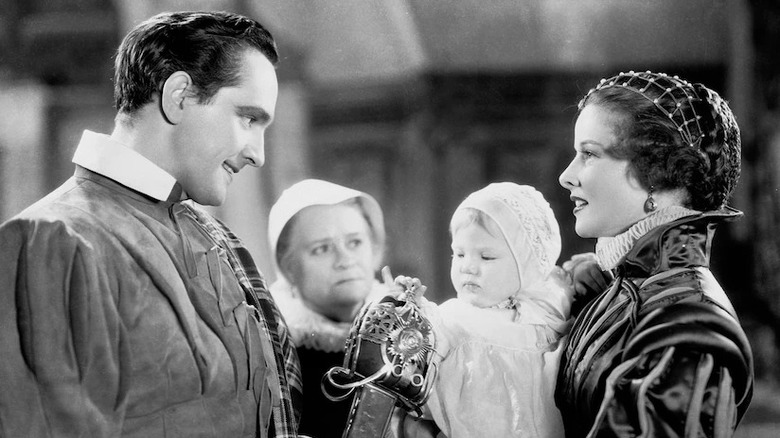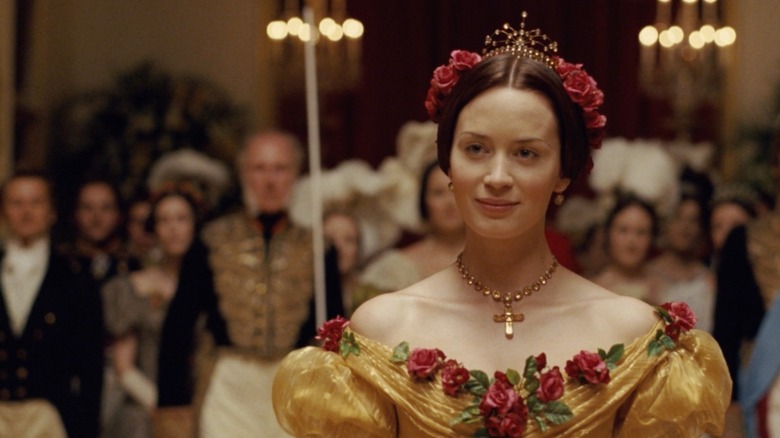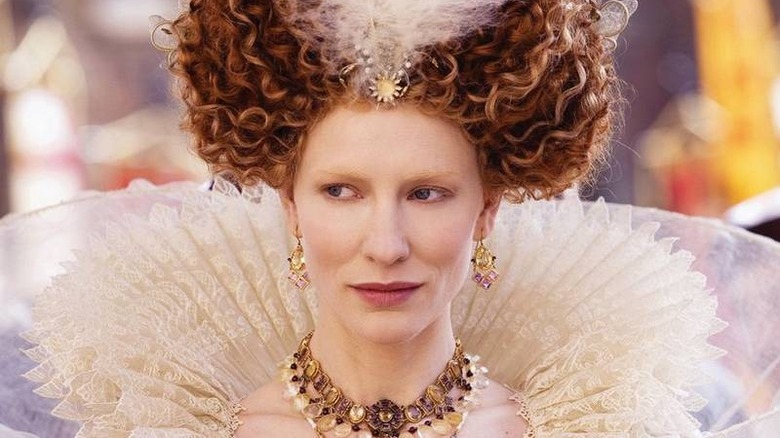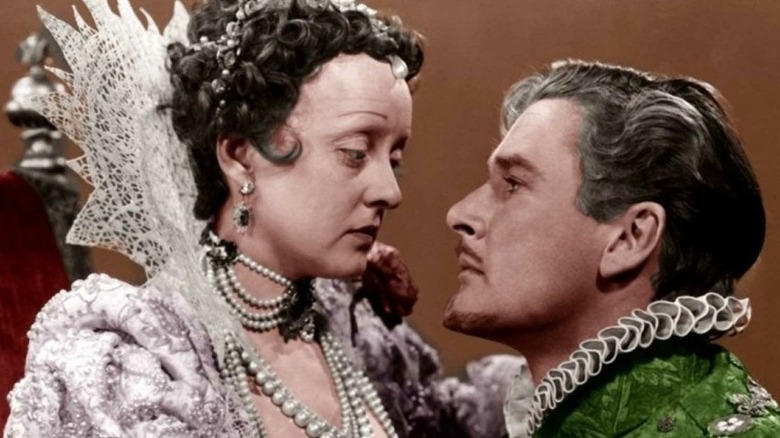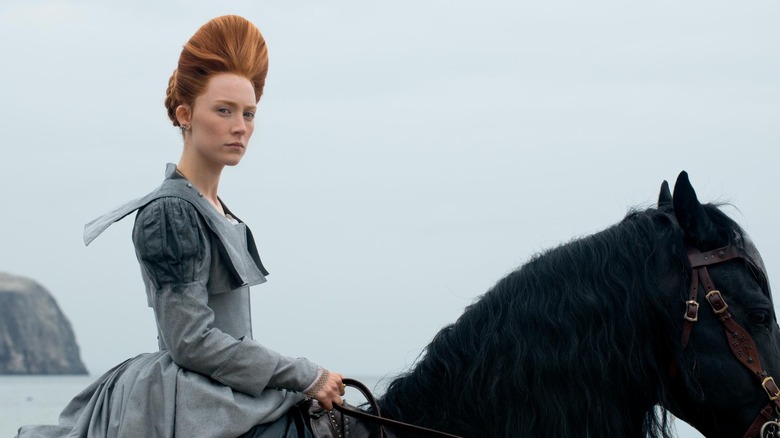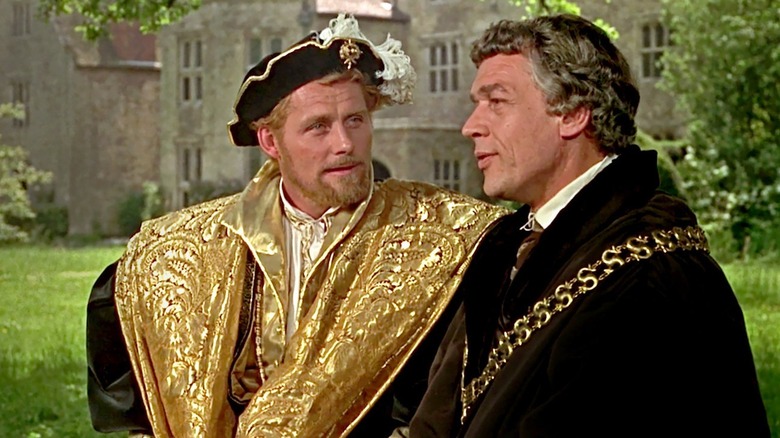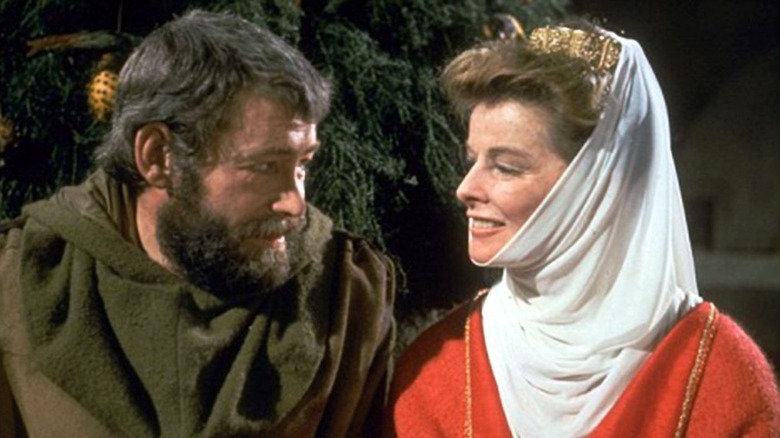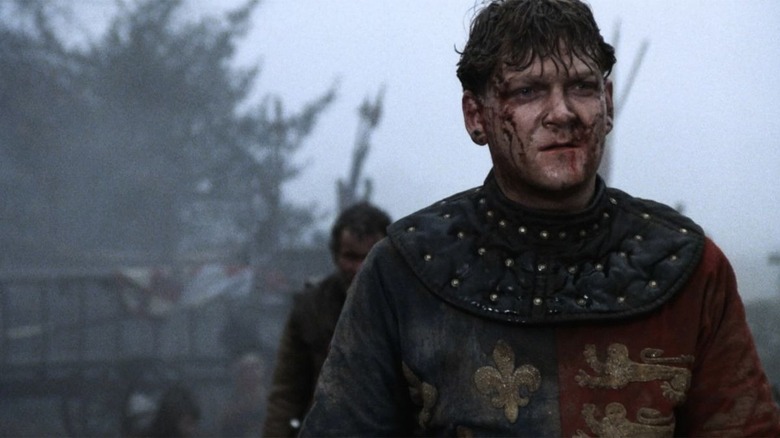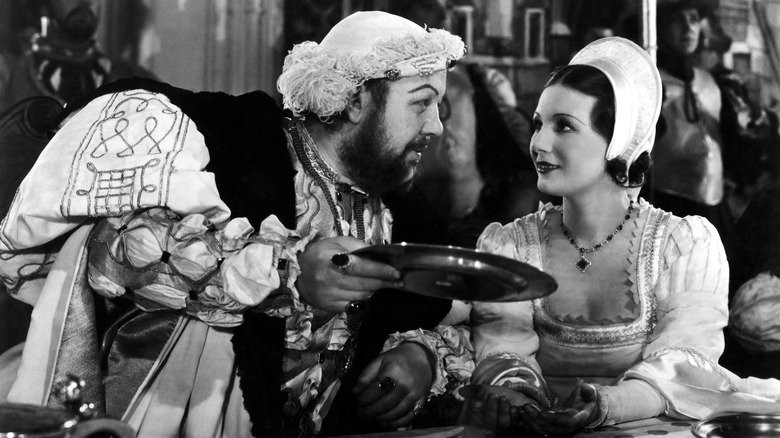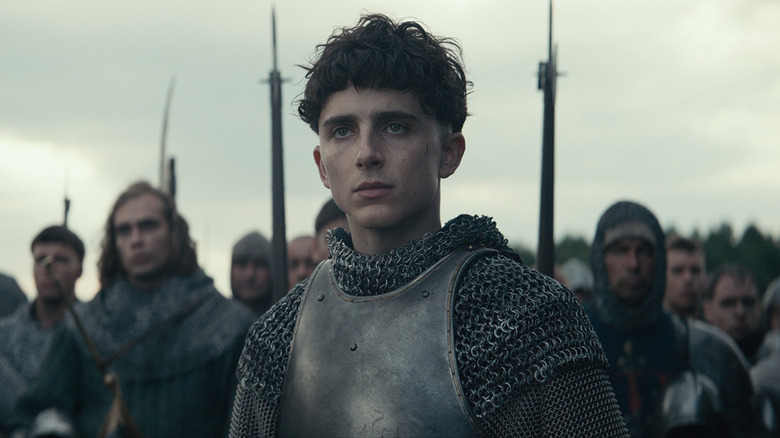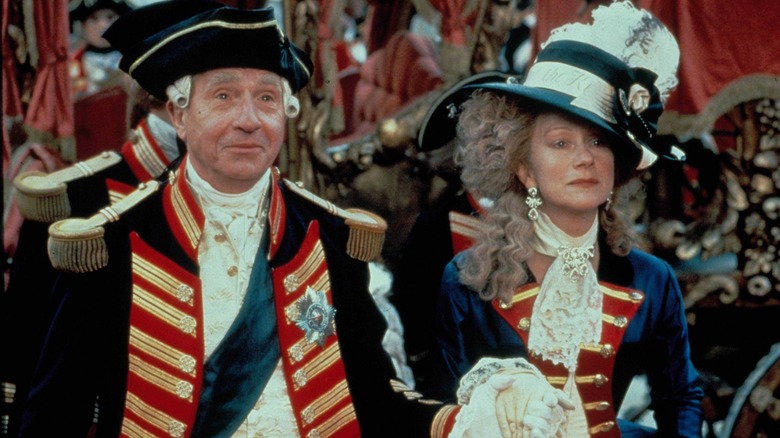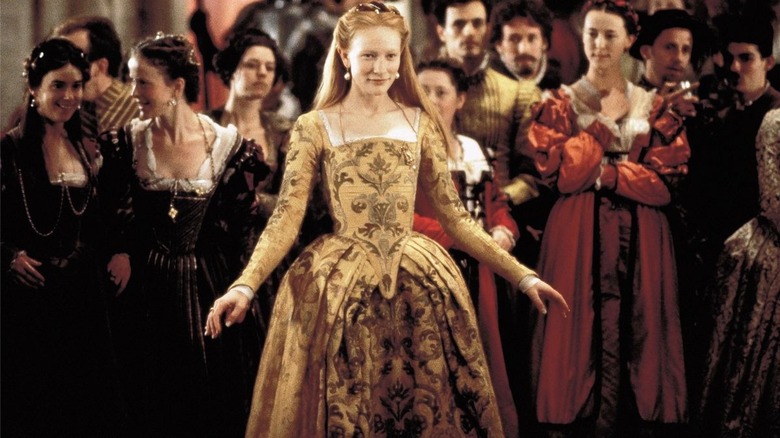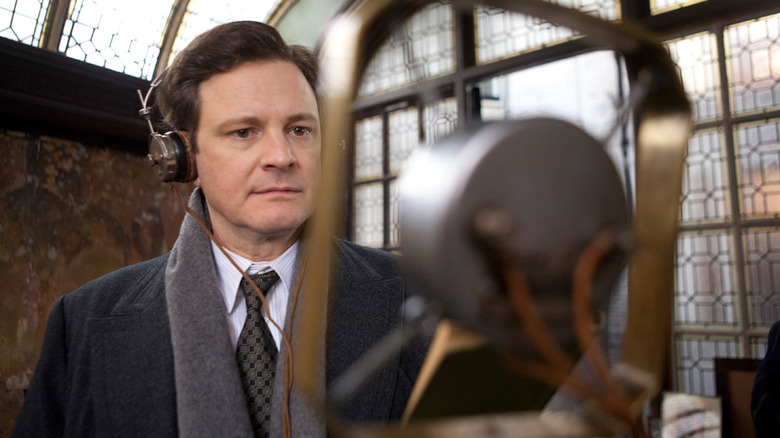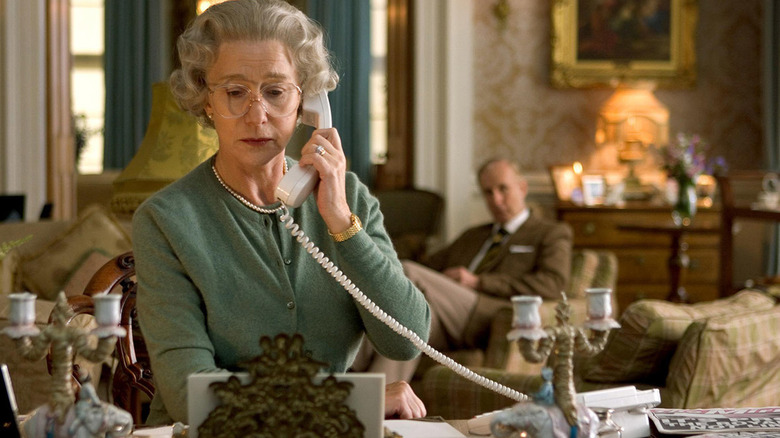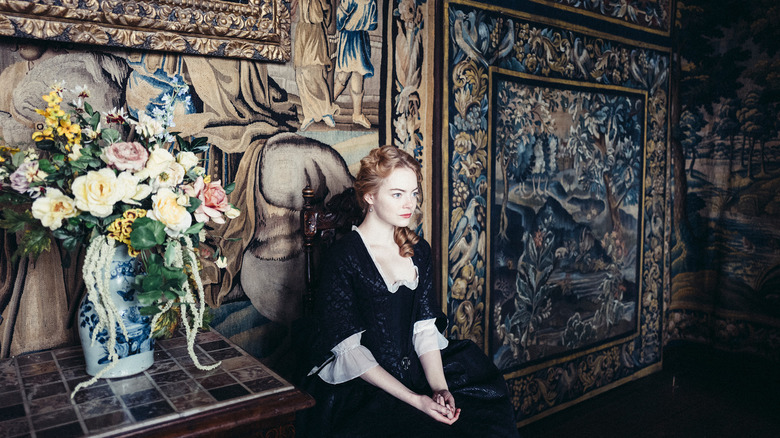The 15 Best Films About British Royalty
There's something about the monarchy in Great Britain that has always made for tremendously dramatic cinematic material. No matter how much we try to proclaim our distaste for the institution (that it's an essentially parasitic power structure feeding off the British people, that it churns out emotionally damaged individuals who consider themselves above the law, that is has no business even existing in a modern society — take your pick), we are endlessly fascinated by the royals' exploits.
Whether exploring the romanticism of the past through long-dead kings and queens or focusing on our current royal family as they attempt to carve out a place of relevance for themselves in a rapidly-changing society, there is an endless reserve of both potential narratives and audience interest. Starring as a member of the royal family is one of the most time-honored ways to get yourself an Oscar nomination: Over the years, actors have been nominated 20 times for playing a British royal (and with Kristen Stewart's recent turn in "Spencer," many expect that number to soon be 21). We just can't seem to let go of our inherent curiosity about the complicated lives of monarchs.
Mary of Scotland
Looking back, Katharine Hepburn may not have been the obvious choice to play Mary, Queen of Scots in "Mary of Scotland." Although she's certainly Hollywood royalty, Hepburn has a very distinctive New England accent that doesn't exactly make her fit in amongst the heather of the Scottish Highlands. But while she's not able to disappear into the role, Hepburn's interpretation of the tragic Scottish queen is nonetheless fascinating. Perhaps a bit more sympathetic to the real-life person than actual history, her Mary is a dramatic figure who has been wronged by her royal cousin, Queen Elizabeth of England.
Is it historically accurate? Probably not, but it does go a long way in humanizing Mary, Queen of Scots, who would die young before seeing her beloved son James take the English throne. Sadly, however, audiences at the time were not so convinced. "Mary of Scotland" was a major flop, and its failure to connect with viewers contributed to Hepburn being branded "box office poison" during the 1930s.
The Young Victoria
Most films about English royalty tend to focus on the central conflict of their lives: their responsibilities as a leader and figurehead, and their desire to have a more private life. But while Queen Victoria certainly had her share of issues (her famously overbearing mother forced Victoria to share a bedroom with her until she inherited the throne at age 18), "The Young Victoria" is notable for being one of the lightest, fluffiest royal dramas around.
It's mostly about the burgeoning relationship between Queen Victoria (Emily Blunt) and her future husband Prince Albert (Rupert Friend), a romance that would stand in contrast to many royal marriages that were considered little more than a political tool between nations. When Albert died at the premature age of 42, Victoria was plunged into the deepest mourning, wearing all-black until her own death forty years later. But here, we see them young and happy, one of the rare successful marriages in the Hanoverian line.
Elizabeth: The Golden Age
It's rare that an actor ends up playing the same king or queen more than once, but in the case of Cate Blanchett, whose work as Queen Elizabeth I in "Elizabeth" was so mesmerizing, it's justified. Nine years after "Elizabeth," she once again took up the mantle as the Virgin Queen, this time portraying a somewhat fictionalized version of events later in her reign. Where "Elizabeth" saw its queen abandoning her identity as an individual woman and embracing a figurehead role that would border on mythical, "Elizabeth: The Golden Age" sees her considerably older and more secure on the throne.
Despite this, she faces threats from all quarters, as Spain eyes the British crown and she is overwhelmed by pressure to marry in order to ensure the continuation of the Tudor dynasty. Although it plays a little fast and loose with the truth (the real Elizabeth was 52 during the events of this film, so surely any attempts to produce an heir would have been moot at this point), it proves once again Blanchett's considerable talents. She would be nominated once again for her performance, making her just the second actor to be nominated twice for the same royal role.
The Private Lives of Elizabeth and Essex
Where other films about Queen Elizabeth try to glamorize her, "The Private Lives of Elizabeth and Essex" delivers a sadder and more melancholy interpretation of the character. Here, the aging queen is engaged in a romance with the much younger Earl of Essex (Errol Flynn), who is driven as much by ambition as he is affection. Bette Davis develops a nuanced depiction of Elizabeth as a proud but lonely woman who desperately wants to be loved for herself, and not just the favors she can bestow.
She is determined not to give Essex special preference, which he interprets as a purposeful slight. Neither willing to compromise, their lovers' tiff evolves into something much larger and more destructive. Davis is the clear standout of the cast (she would, in fact, revisit the character of Queen Elizabeth 16 years later in "The Virgin Queen), and while Flynn can hardly hope to match her from a technical standpoint, he brings a youthful energy and arrogance to the role that provides a perfect counterpart.
Mary Queen of Scots
For a brief moment in the late 1500s, the fates of two deeply conflicted nations were in the hands of female rulers: Queen Elizabeth I of England, and Mary, Queen of Scots. Saoirse Ronan stars as the impetuous young queen in "Mary Queen of Scots," freshly returned from a brief marriage to King Francis II of France.
She is romantic, headstrong, and passionate, qualities that do not exactly endear herself to the Scottish noblemen, who are already wary of allowing a woman to lead their country. This is counterbalanced by the incomparable presence of Elizabeth, who was essentially forced to kill the feminine parts of herself to gain the trust of her male advisors. The two women only share one scene together (and indeed, in real life they never met at all, despite being cousins), but they operate as foils for each other throughout the entire film.
A Man for All Seasons
This is not so much a movie about Henry VIII as it is about the guy that Henry VIII royally screwed over. "A Man for All Seasons" refers to Sir Thomas More, the Lord Chancellor of England and one of King Henry VIII's most trusted advisors. But for many kings, good counsel amounts to being told what they want to hear, and that's where More steps out of line.
When King Henry VIII decides to seek a divorce from Catherine of Aragon, precipitating an unprecedented conflict with the Pope, he expects More to back his play. More refuses; he can't, in good conscience, go against the church. Paul Scofield plays Thomas More as a man of utmost honor, whose tragedy is his moral fortitude. There's a certain inevitability to the chain of events displayed in "A Man for All Seasons": both he and Henry VIII are larger-than-life figures with rigidly defined characters. Neither is capable of yielding, and both will suffer for it.
The Lion in Winter
With films about modern-day royals, it's much more common to get narratives that delve deeply into their interpersonal relationships. But kings from hundreds of years ago wielded a tremendous amount of political power, so their storylines tend to revolve around major historical events. That's why "The Lion in Winter" is so fascinating. It's essentially a relationship drama that just happens to center on King Henry II (Peter O'Toole) and Eleanor of Aquitaine (Katharine Hepburn.) Their marriage was tense, to say the least — Eleanor supported her eldest son in a rebellion against the king, who in turn had her imprisoned until his death.
This story is a brief respite from their estrangement, as Eleanor is given leave to celebrate Christmas with the family, where they continue to argue over who will succeed Henry as king. This would represent the second time in four years that O'Toole would play Henry II (the first was 1964's "Becket"), and both he and Hepburn would be nominated by the Academy for their efforts (Hepburn, in a moment that would make Oscar history, ended up tying for best actress with Barbra Streisand in "Funny Girl").
Henry V
A fun thing about William Shakespeare is that he was frequently reliant on royal patronage or, at the very least, the crown's good favor. Ever wonder why there are so many plays written about English royalty? "Henry V" is perhaps one of the most famous Shakespearean plays about a former king of England, and it receives the blockbuster treatment in this 1989 adaptation from Kenneth Branagh. He both directs and stars in the film, which details the exploits of the young King Henry V, culminating in his famous underdog victory at Agincourt.
Some audiences may prefer the earlier version of "Henry V" from Laurence Olivier, one of the greatest Shakespearean actors in cinematic history, but there's something about this interpretation that makes it a powerful adaptation of the text while still managing to be accessible to mainstream audiences. When Branagh launches into his famous St. Crispin's Day speech, he's got us hook, line, and sinker.
The Private Life of Henry VIII
Out of all the English kings of yore, Henry VIII is probably the one that most modern audiences know the most about. You know, six wives, horrible temper, giant festering wound in his leg, the whole nine yards. But what we get in "The Private Life of Henry VIII" isn't a hot, young king like Jonathan Rhys-Meyers in "The Tudors." This is a Henry VIII 20 years into his reign, right after he throws a tantrum, starts his own branch of Christianity out of spite, and has his second wife Anne Boleyn executed. Our man has some baggage.
"The Private Life of Henry VIII" takes us through his final four wives, and succeeds largely on the merits of legendary early film actor Charles Laughton's performance in the lead role, which won him the fourth-ever best actor Oscar. It would also launch director Alexander Korda's career on the international stage, establishing him as one of the premier new directors to watch for.
The King
Is it kind of bizarre to have Englishman Robert Pattinson play a very campy version of the French dauphin and half-French Timothee Chalamet play one of the most famous English kings of all time? Honestly, that's just the sort of thing that makes "The King" a surprisingly delightful historical drama. Chalamet plays Henry V, a shiftless layabout grappling with his birthright as the future king of England. While he spends his youth drinking and whoring his way through London, when it's time for him to take up the crown, he somehow finds himself more than up for the challenge.
"The King" takes us through his somewhat desperate efforts to be taken seriously as a ruler, until he wins the famous Battle of Agincourt, a victory that would cement his reputation throughout history. "The King" received mixed reviews when it was initially released, but the combined efforts of Chalamet, Joel Edgerton as Falstaff, and Pattinson as probably the most ridiculous Frenchman on screen since John Cleese in "Monty Python and the Holy Grail" make it more than worth the watch.
The Madness of King George
If you have just one ruler, and he's kind of in charge of everything, you're putting a lot of trust in him. So, it's obviously less than ideal if he ends up experiencing severe mental health issues, as was the case with King George III. "The Madness of King George," starring Nigel Hawthorne and Helen Mirren, highlights the king's rapid cognitive decline and his relationship with his heir. Hanover kings were known for having complicated relationships with their sons, and theirs was made all the more difficult with the Prince of Wales stepping into a role as regent while his father was incapacitated. The last 30 years of George III's life would be defined by periods of intermittent mania and lucidity.
But despite the somewhat bleak subject matter, "The Madness of King George" is far from downcast. With rich period details, performances from some of the greatest British actors of the time, and a wry sense of humor, it's surprisingly fun.
Elizabeth
Our vision of Queen Elizabeth I is largely defined by her later years, when she's a confident, mature leader beloved by her people after the violent and unstable reigns of her two siblings. "Elizabeth" offers an interpretation that reminds us that the famously competent monarch was, like everyone else, young once, and it is in her youth that she is molded into the dynamic ruler she would eventually become. Cate Blanchett brings a joy and energy to her performance, showing the charm and intelligence that would keep her safe even while being imprisoned by her older sister, Mary I, who was threatened by her as a rival.
"Elizabeth" also shows the sacrifice that all monarchs must make, and how they must give up something of themselves in order to rule effectively. For Elizabeth, it would be some aspect of her womanhood, as she learns over the course of the film that her overt femininity would prevent her from being taken seriously at court, and that, if she were to wed, she would lose her position of power. Blanchett is resplendent, and she would receive her first Oscar nomination for this performance.
The King's Speech
Historically, the best English rulers have been the ones who never expected to inherit the throne. That's the case for the star of "The King's Speech," Prince Albert, Duke of York, whose plan to live a quiet life with his wife and daughters is upended by his brother's shocking decision to abdicate the throne for the love of Wallis Simpson. The quiet, mild-mannered man with a severe stutter is suddenly thrust into the limelight, just as the United Kingdom needs a strong leader more than ever. To rise to the occasion, he hires an Australian speech therapist (Geoffrey Rush) to help him overcome his difficulties with public speaking.
As Albert (aka "Bertie"), Colin Firth brings a humanity to the role, and through his empathetic performance we can see a man who feels utterly crushed under the pressure placed on him by his royal status. It also throws into sharp relief the darker side of such a public family, with abuse hurled at the members whose differences make them less suited for the demands of the job.
The Queen
In 1997, the British royal family was rocked by the untimely death of the beloved Princess Diana, as we see in the events of "The Queen." The nation was thrown into mourning, and the monarchy faced one of its most significant existential threats in modern history. The royal family had long developed a policy of state-sanctioned emotional repression, and they believed it was their responsibility as figureheads to remain stoic regardless of the situation. But that view would be dramatically challenged, as it became clear to everyone (except, perhaps, the Windsors) that the nation needed to see their grief.
Helen Mirren stars as Queen Elizabeth, and her performance is illuminating. She genuinely doesn't understand why the public would want to watch her or any of her family fall to pieces, and as we watch her stubbornly refuse to consider the evolving role of the monarchy, we are both frustrated by and empathetic to her. Mirren was nominated for an Oscar in 2006 for her work in "The Queen," and indeed she does a better job of delving into the psychology of Elizabeth than anyone else before or since.
The Favourite
No one is able to blend melancholy and razor sharp humor quite like Yorgos Lanthimos, the director of "The Favourite." In it, we see the entirely female-dominated court of Queen Anne (Olivia Colman), and the rivalry of two noblewomen (played by Rachel Weisz and Emma Stone) for her affections. They are merciless in their Machiavellian ambitions, willing to do anything to curry favor with their queen.
Queen Anne herself is mercurial; having experienced severe loss (she had 17 pregnancies, only five of which resulted in live births, and none of which lived past the age of 11) she is emotionally unstable and relies entirely on the support of these two women. Still, she is the queen, so there's an intriguing power dynamic at play between the three: They're manipulating her, but at the end of the day, she controls their destinies, and they're never allowed to forget it. A post-modern interpretation of the traditional period drama, "The Favourite" is complex and deliciously saucy.
